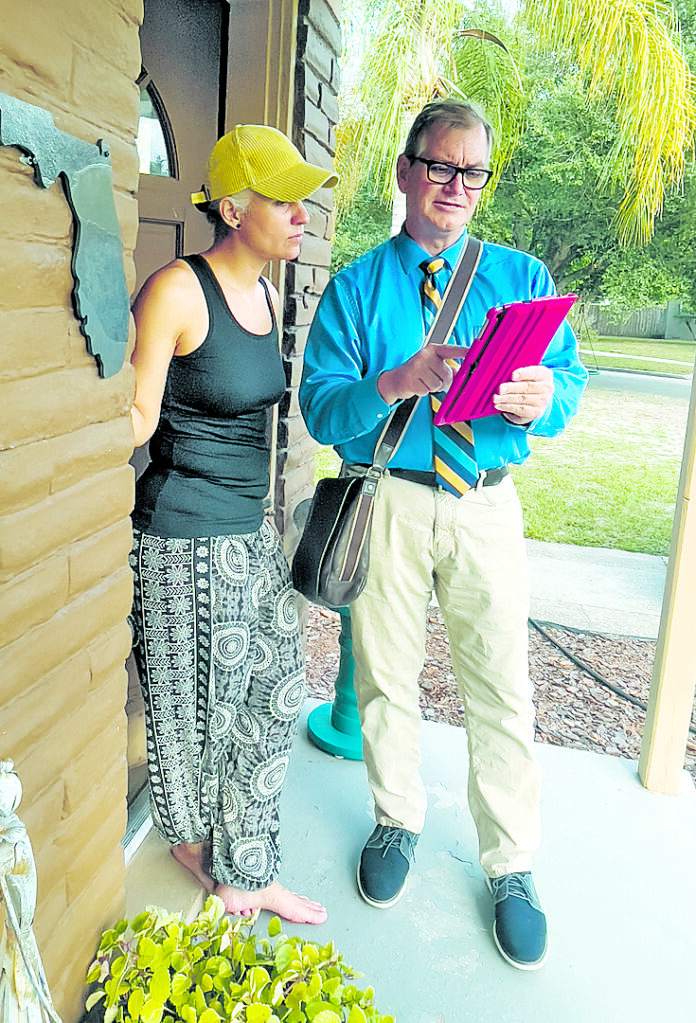
BY KEITH BARROS
While Jehovah’s Witnesses have chosen to temporarily suspend their door-to-door ministry due to the pandemic, their activity was almost permanently banned by one U.S. village in the late 1990s — that is, until the United States Supreme Court stepped in with a historic 8-1 decision on June 17, 2002, declaring the local ordinance unconstitutional.
With the 20th anniversary of the precedent-setting decision in Watchtower v. the Village of Stratton, Ohio, at hand, constitutional scholars marvel at the outsized impact the decision has had on the protection of free speech for all, agreeing with former Justice Antonin Scalia’s opinion in the case, “The free-speech claim exempts everybody, thanks to Jehovah’s Witnesses.”
“Looking back on the two decades since the decision, it’s clear to see the wide-ranging impact that Watchtower v. Stratton has had on free speech for all,” said Josh McDaniel, director of the Religious Freedom Clinic at the Harvard Law School. “This is just the latest of some 50 Supreme Court victories by Jehovah’s Witnesses that have helped establish and broaden First Amendment jurisprudence throughout the last century.”
The village of Stratton passed a local ordinance making it a criminal offense to go door to door without first obtaining a permit from the mayor.
Watchtower Bible & Tract Society of New York, the organization representing Jehovah’s Witnesses, brought legal action against the village in District Court and then in the U.S. Court of Appeals for the 6th Circuit, with both courts largely upholding the local ordinance.
The Supreme Court agreed to take up the case. The stakes were high for Jehovah’s Witnesses, who were facing similar restrictions on door-to-door evangelizing in hundreds of other municipalities.
On June 17, 2002, the high court ruled that requiring a permit to knock on doors violated the rights of any person who wants to engage in free speech with their neighbor. The decision paved the way for all citizens to maintain open dialogue with their neighbors on any number of issues, including environmental, civic, political or educational.
“Our motive for initiating the case was clear: We wanted to remove any obstacle that would prevent us from carrying out our scriptural obligation to preach the good news of the Kingdom,” said Robert Hendriks, U.S. spokesman for Jehovah’s Witnesses. “Making it a criminal offense to talk with a neighbor without seeking government approval is offensive to many people, but particularly to God, who commanded Christians to preach the gospel.”
The village of Stratton became a center of controversy in 1998 after the mayor personally confronted four Jehovah’s Witnesses as they were driving out of the village after visiting a resident.
Subsequently, the village enacted the ordinance “Regulating Uninvited Peddling and Solicitation Upon Private Property.”
The court victory in the challenge to this ordinance is one of more than 250 rulings in cases brought by Jehovah’s Witnesses in high courts around the world that have expanded the rights of people of all religious faiths.
“It’s hard to point to any organization, let alone a religious organization, that has had such a profound impact on the shaping of constitutional law over many decades in the Supreme Court,” Harvard professor McDaniel said.
For more information on the Stratton case, go to www.jw.org and type “Stratton” in the search field.
— Barros, of the Jehovah’s Witnesses public-information office, is the Central Florida contact for Jehovah’s Witnesses.